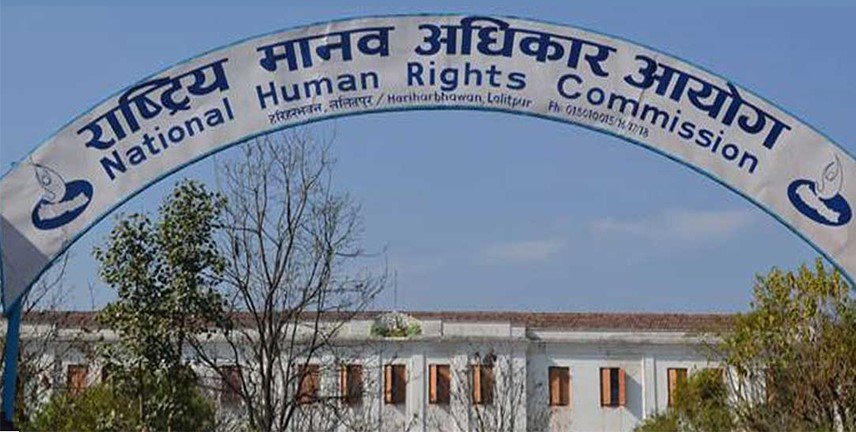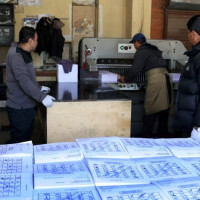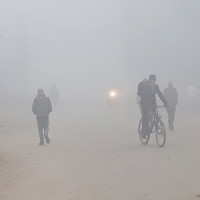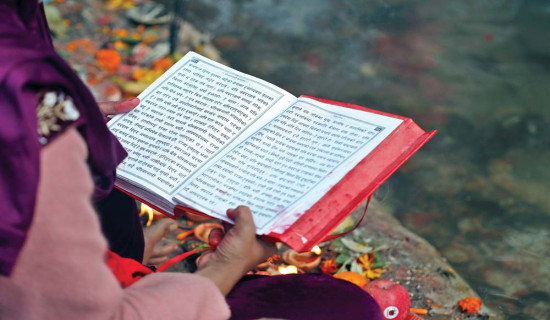- Saturday, 14 February 2026
‘Transitional justice should be victim-friendly’
Kathmandu, July 9: The National Human Rights Commission (NHRC) has unveiled its works related to transitional justice by organising a press meet here on Monday.
The Commission has submitted its opinion prepared based on various discussions held at the national level and studies conducted at the international level for the fourth time to the sub-committee formed under the Law, Justice and Human Rights Commission for clause-wise discussions of the Bill on Investigation of Disappeared Persons, Truth and Reconciliation Commission Act, 2071 (third amendment).
The main 11 points of the concept presented include truth-seeking and investigation, justice and prosecution, reparations and amnesty.
In the context of bringing transitional justice to its conclusion, the 19-point suggestions have been sent to the government and the Parliament on July 5, 2024, the NHRC informed.
A comprehensive peace agreement was signed between the then-warring parties on November 21, 2006. It paved the way for addressing serious human rights violations caused by the armed conflict from 1996 to 2006.
In this connection, the Commission held a high-level interaction programme in the presence of government representatives, major political parties, civil society leaders and the victims.
The Commission has supervised the transitional justice-related programmes organised by the Ministry of Law, Justice and Parliamentary Affairs in all seven provinces.
The Commission has repeatedly drawn the attention of the government and concerned stakeholders by issuing press releases, correspondence and their views to bring transitional justice to a logical conclusion.
In the meantime, the Commission has reminded that the government should not grant amnesty to individuals in cases related to serious disappearances, extra-judicial killings, kidnappings, torture, rape and sexual violence of serious nature and should not amend the Investigation of Disappeared Persons, Truth and Reconciliation Commission Act, 2071 BS as per the international principles of human rights, the order of the Supreme Court and the recommendations of the Commission.
A serious violation of human rights is defined as any act committed by anyone in the course of an armed conflict by targeting or deliberately supporting or instigating any party to an armed conflict against an unarmed person, the public or a person who is not involved in the conflict between the parties.
The problems faced by those who were injured or killed even after the comprehensive peace agreement by the explosion of bombs laid during the armed conflict and those who were killed or injured after the peace agreement, those who were affected, injured and killed by the unclaimed bombs, and the individuals or families who have not yet received the lost property after internal displacement, the displaced children, the persons with physical and mental disabilities should be addressed by law.
There should be a structural provision in the Truth and Reconciliation Commission to address the problems of the community, including the disqualified child soldiers, and persons with physical and mental disabilities due to armed conflict.
The Commission is committed to the suggestions made to ensure that there is no amnesty in cases of serious crimes, crimes against humanity and war crimes while granting amnesty, amnesty or remission in cases of human rights violations, mandatory and independent consent from the victims.
In its concept made public on February 5, 2018, the Commission stated that amnesty should not be granted in cases of serious human rights violations such as enforced disappearances, extra-judicial killings, kidnappings, torture, rape and sexual violence.
The Commission opines that it would be appropriate to fix the proportion of punishment accordingly as the Commission for Investigation of Disappeared Persons and the Amendment Bill of Truth and Reconciliation Commission (first amendment) Act, 2071 BS have suggested earlier that at least 25 per cent of the punishment mentioned in the prevailing law should be borne in the case of people found guilty of serious violation of human rights.
Speaking at the press meet, Top Bahadur Magar, Chairperson of NHRC, said that transitional justice should be made victim-friendly.
He said that while concluding transitional justice, victim-friendly policy should be ensured and child-related violence, sexual violence should be ended.
He said transitional justice could be concluded only if the government, the victims and the Maoist side involved in the conflict worked actively.
Chairman Magar urged the government to implement the recommendations made by the Commission.
“The main thing is to formulate an Act. Justice cannot be done without an Act. The government should be active in the finalisation of transitional justice, and the Maoist side involved in the conflict should also be active. We cannot reach a conclusion without the cooperation of all,” he said.
















